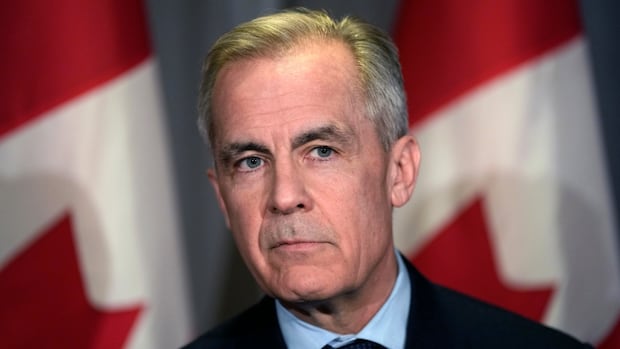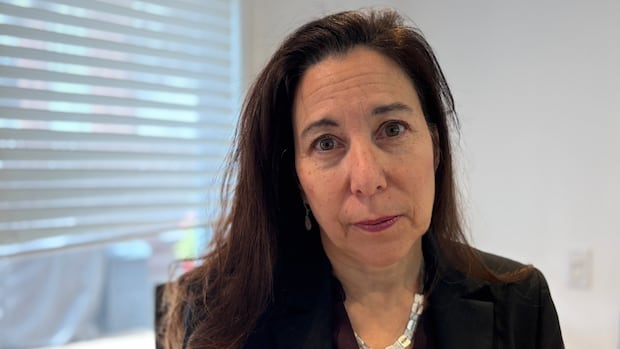Less than one-third of the 1.3 million Ontario residents who rely on private wells for their drinking water had it tested within the last twelve months, says a report by the province's auditor general.
In her report released on Monday, Shelley Spence called the low testing rates "troubling" and found it's partly due to a lack of awareness among private well owners about free water testing services available to them — along with owners not knowing risks of drinking untested water.
"It is very concerning because water is part of a flow, so there can be very different sources of water coming into those wells and things can change," Spence told CBC's Afternoon Drive on Monday.
"It is really important for both the owners of small drinking water systems and private wells to get their water tested frequently."
Small drinking water systems are non-municipal systems that serve public facilities like hotels, restaurants or churches, and they are overseen by local public health units (PHU).
There are approximately 500,000 private wells at cottages, farms and other residences across the province. Unlike other non-municipal water systems, they are not regulated by the Ministry of Environment, Conservation and Parks (MECP), meaning it's up to owners to have the water tested.
A 2021 Statistics Canada survey found that 40 per cent of private well owners in Ontario don't treat their water, making the lack of testing riskier, the report said. Some public health studies have suggested users of private wells are more prone to waterborne illnesses than individuals who get their drinking water from municipal systems.
That lack of testing exposes Ontarians to health risks such as gastrointestinal illness and other serious health effects, including death. It can also result in significant financial costs due to hospitalizations, doctor visits and lost work days.
"Drinking water can have contaminants such as biological issues," Spence said. "We've all heard of E-coli being in water, it can also have particle issues like having nitrates or lead in the drinking water which can have long-term and short-term effects for people using that water source."
Over the past decade, 98 per cent of drinking water tests from non-municipal systems have met Ontario's Drinking Water Quality Standards.
 A Barrington, N.S., trailer park has been under a boil-water order for two years with no end in sight. (CBC)
A Barrington, N.S., trailer park has been under a boil-water order for two years with no end in sight. (CBC)The lack of testing at private wells is very concerning and can pose significant health risks for people, said Aina DeViet, a member of the Middlesex-London Health Unit's board
"There are a lot of people who aren't getting their wells tested regularly. It's very important to have it done, so I find that to be a really frightening statistic," said DeViet about the low testing rate.
DeViet, who also uses private well in Middlesex County, said some residents are very organized and keep records of their water tests, but others aren't aware of how often they should be monitoring their water. She believes a joint educational effort between health units and municipalities can help bring awareness to communities, she said.
"Maybe it's something local health units should take on and they could work with municipalities they support," she said. "We could help them with campaign websites to make sure our residents know. We have a number of channels we can use so we could help get it out."
Ontario's Ministry of Health requires PHUs to inspect low and moderate-risk small drinking water systems at least once every four years and high-risk systems every two years. The auditor general's report found 52 per cent of the 33 PHUs didn't inspect all systems as required, with some backlogs dating more than five years.
The backlogs are due to a lack of inspectors and a heavier workload with them require to inspect municipal sewage and stormwater systems.
LISTEN: Too many private water wells not being inspected properly, says auditor general
Afternoon Drive7:33Auditor general's report says too many water wells are not be inspected properly
Many homes and facilities in Ontario draw their water from underground wells, but a new report from the auditor general says too many are not being inspected properly. Host Matt Allen hears more about the contamination risks and the report from Shelley Spence, Ontario's auditor general.The report said MECP is responsible for monitoring and enforcing compliance but lacks capacity to regularly inspect them. It regulates 1,800 systems and 34 per cent of those haven't been checked in more than five years and nine per cent haven't been checked in seven years, including a community college that provides drinking water to 2,500 people.
At the time of the audit, MECP had backlog of 73,800 well records not properly processed and updated to the Ministry's wells database.
The auditor general made a number of recommendations to the province, including Ministry of Health and MECP working together to increase the frequency of inspections, and public health units using their enforcement powers to get people to comply with testing guidelines.
"We really do need to do our part in getting the water tested and hold the government responsible for making sure people are informed as to how to go about getting their drinking water tested and using those enforcement tools to make sure people who are supposed to be doing this are actually doing it," said Spence.
Information on testing services can be found a local public health units.













